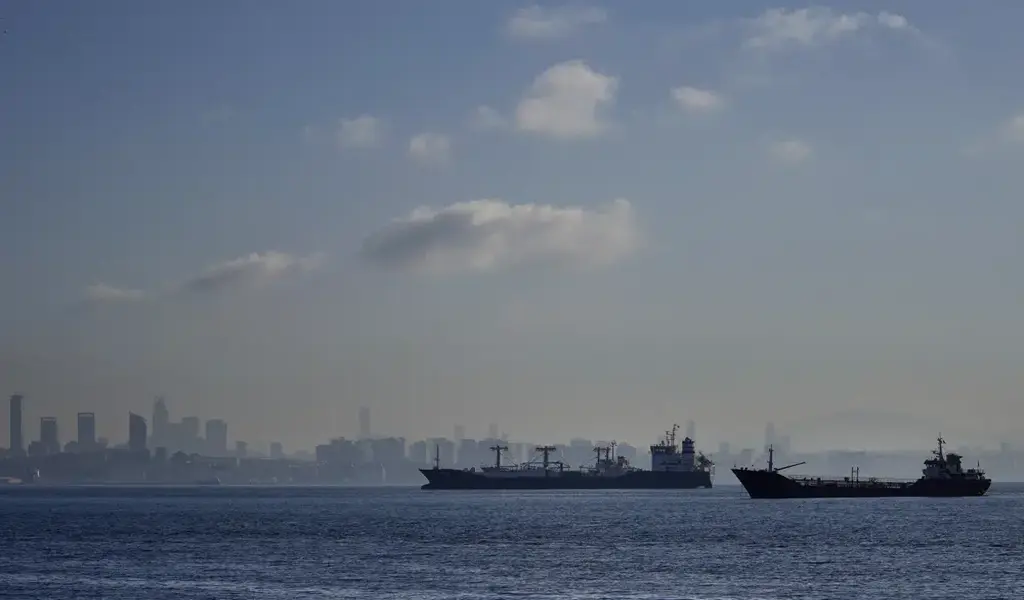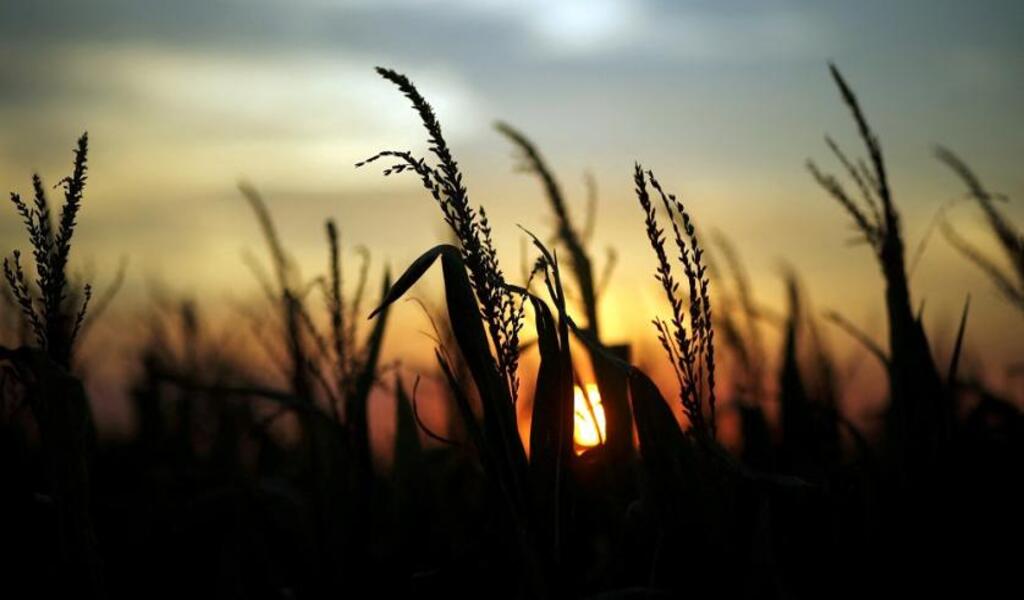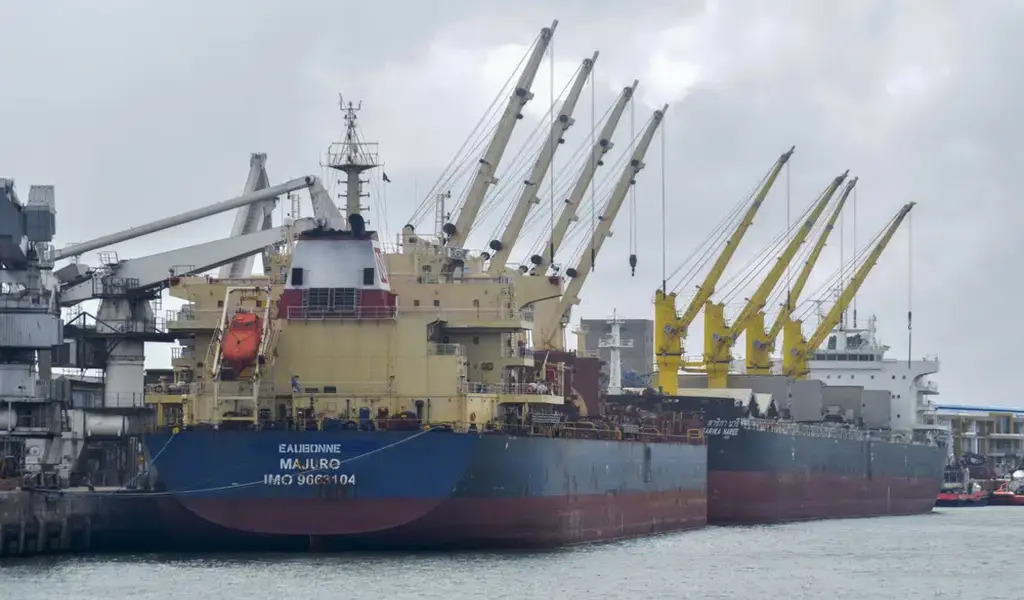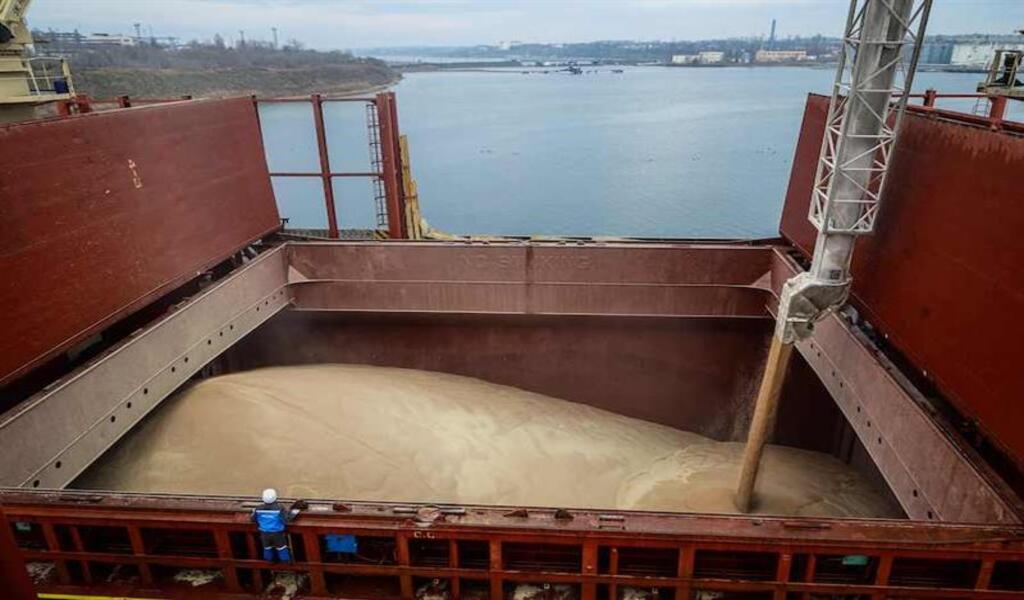News
Ukrainian Grain Shipments Drop Due To Growing Ship Backups

(CTN NEWS) – LONDON – Even though a U.N.-mediated agreement aims to keep food flowing to developing countries, the volume of grain leaving Ukraine has decreased.
Ship inspections have decreased to half what they were four months ago, and the backlog of boats is building as the anniversary of Russia’s invasion draws closer.
According to Ukrainian and possibly American officials, the inspections are being slowed down, but Moscow has denied this.
Concerns are raised about the impact on those going hungry in Africa, the Middle East, and parts of Asia — countries that depend on readily available food supplies from the Black Sea region — if less wheat, barley, and other grain is exported from Ukraine, known as the “breadbasket of the world.”
The difficulties arise as separate agreements that Turkey and the U.N. struck last summer to maintain supplies coming from the warring countries and down skyrocketing food costs are up for renewal next month.

/ AP
Moreover, wheat, other grains, sunflower oil, and fertilizer are major exports from Russia, and officials there have voiced their displeasure about the delay in delivering these vital nutrients to crops.
According to the Joint Coordination Center in Istanbul, under the terms of the agreement, food shipments from three Ukrainian ports decreased from 3.7 million metric tonnes in December to 3 million in January.
There, inspection teams from Turkey, the United Nations, Russia, and Ukraine ensure that ships carry only agricultural goods and no weaponry.
The supply reduction is equivalent to Kenya and Somalia’s monthly food consumption. It comes after average daily inspections, which peaked at 10.6 in October, slowed to 5.7 last month and 6 this month.
This has contributed to a backlog of ships waiting to be inspected or join the Black Sea Grain Initiative in the waters of Turkey. According to the JCC, 152 ships are waiting in line, up 50% from January.
Ruslan Sakhautdinov, leader of the Ukrainian delegation to the JCC, noted that this month, the wait time for a vessel to be examined after applying was 28 days on average. It is an extra week over January.
Shipments are also impacted by variables, including bad weather making inspections difficult, shippers’ requests to participate in the program, port activity, and vessel capacity.

Corn plants are seen at sunset in a farm near Rafaela, Argentina, April 9, 2018. (Reuters)
If the inspections continue to move slowly, “I think it will become a problem,” said William Osnato, a senior research analyst at the farm data and analytics company Gro Intelligence.
“In a month or two, you’ll learn that a few million tonnes didn’t escape because the process is moving too slowly.”
“By creating the bottleneck, you’re opening up the flow,” he continued. “But as long as they’re getting some out, it’s not a total disaster.”
Samantha Power, the administrator of USAID, and Linda Thomas-Greenfield, the ambassador of the United States to the United Nations, have accused Russia of delay in food shipments to vulnerable countries.
Russian inspectors have been “systematically delaying the inspection of warships” for months, according to a statement posted on Facebook on Wednesday by Ukrainian Foreign Minister Dmytro Kuleba and Infrastructure Minister Oleksandr Kubrakov.
They said Moscow obstructed the deal’s implementation before “taking advantage of the possibility of uninterrupted commerce shipping from Russian Black Sea ports.”
After harvesting a significant wheat crop, Osnato suggested that Russia might be slowing inspections “to pick up more business.”

/ AP
Russian wheat shipments more than doubled to 3.8 million tonnes last month from January 2022, before the invasion, according to figures from financial data source Refinitiv.
According to Refinitiv, Russian wheat shipments reached or nearly reached record highs in November, December, and January, rising 24% over the same three months a year earlier. In 2022–2023, it was predicted that Russia would export 44 million tonnes of wheat.
The claims of purposeful slowdowns are “just not accurate,” according to Alexander Pchelyakov, a spokesman for the Russian diplomatic delegation to U.N. institutions in Geneva, who made the statement last month.
Russian authorities have also complained that their nation’s fertilizer is not being exported by the contract, casting doubt on the renewal of the four-month agreement that is set to expire on March 18.
Extending the agreement without demonstrable outcomes is “unreasonable,” Deputy Foreign Minister Sergey Vershinin told the privately owned Russian-language TV channel RTVI on Monday.
According to U.N. officials, Russian fertilizer has become stuck; they hope the agreement will be extended.
The fact is, I believe this will be conclusive and persuasive, said Martin Griffiths, the U.N. undersecretary-general for humanitarian affairs, in a statement to reporters on Wednesday. “That operation must continue for the benefit of the global south and world food security.”

AFP
Bakery manager Tolulope Phillips in Lagos, Nigeria, has personally experienced the effects. He claims that since the Ukraine conflict started, flour prices have increased by 136%.
Nigeria, a major buyer of Russian wheat, has experienced an increase in the price of bread and other foods.
Phillips said that conditions like this are typically too unstable for any firm to endure.
“You must adjust your costs to reflect this increase, which impacts more than just flour; it also affects flavoring, sugar, diesel, and energy prices. The cost of production has therefore generally increased.”
After reaching record highs in 2022, global food prices, especially wheat prices, have returned to levels reached before the Ukrainian War.
Because consumers are paying in dollars in rising economies that depend on imported food, such as Nigeria, Osnato claimed that weakening currencies keep prices high.
Also, food was already expensive before Russia invaded Ukraine, which worsened the food crisis since droughts hurt crops everywhere, from the Americas to the Middle East, according to Osnato.
He predicted that prices would likely remain high for more than a year. Good weather and a few successful crop seasons are now required to become more at ease with global supply of a variety of grains and “see a major drop in food prices globally.”
RELATED CTN NEWS:
US Accuses China of Arming Russia as Beijing Proposes Peace for Ukraine






























